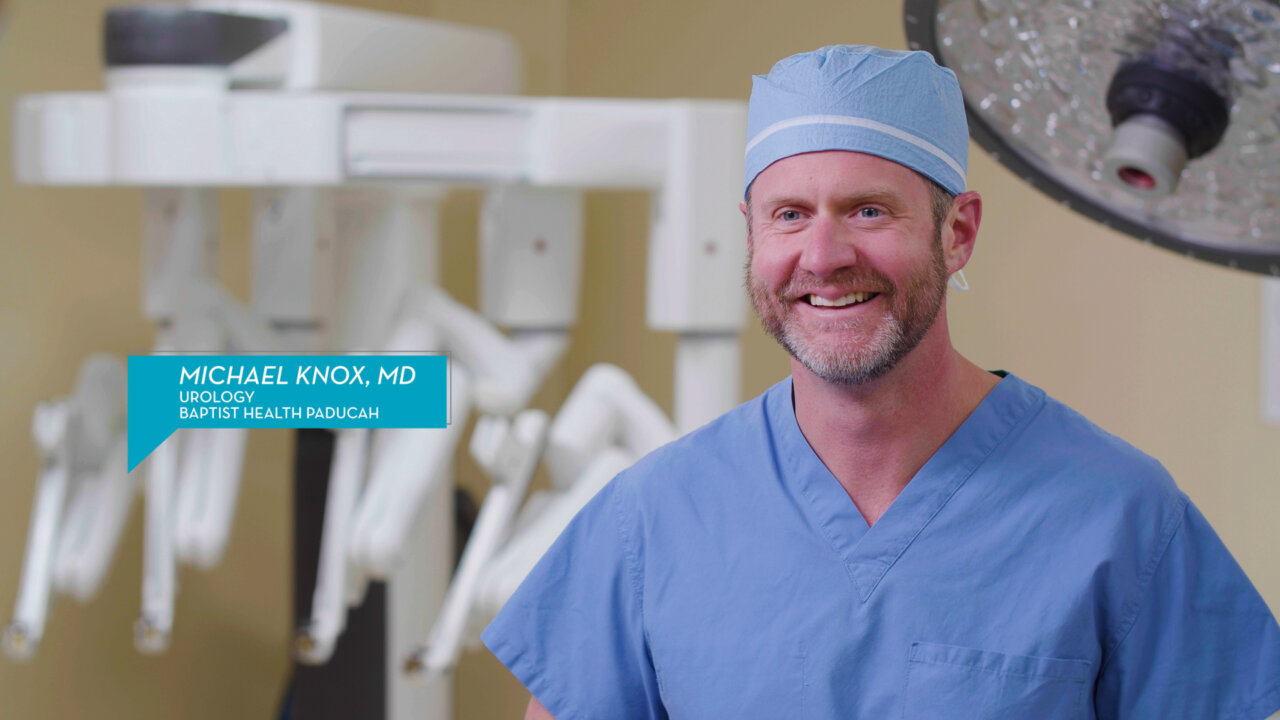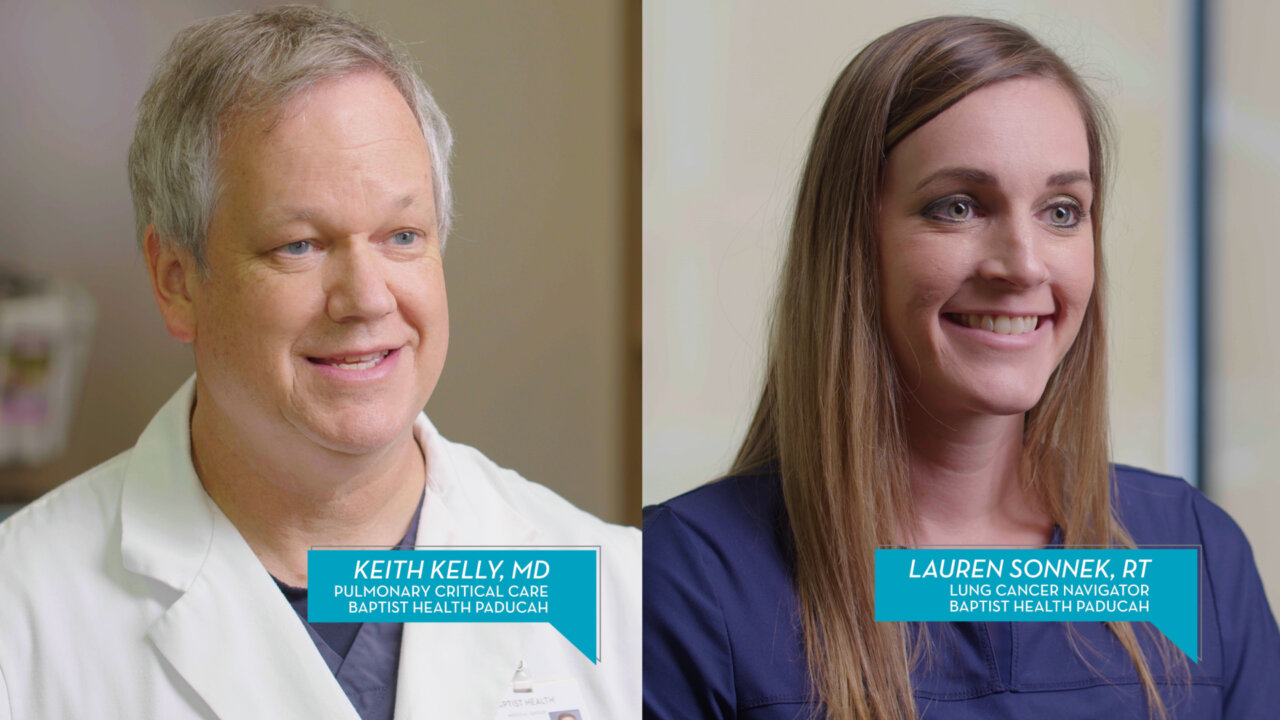Cancer Risk Management Paducah, KY
Managing Your Cancer Risk
Erica Jordan, APRN, Hematology & Oncology
Baptist Health Paducah
Amanda Balcerzak, Paducah, Kentucky
Erica Jordan, APRN:
The Cancer Risk Management Clinic was developed in an effort to decrease the occurrence of cancer in our community by identifying patients who have gene mutations that make them at higher risk for cancer. Those patients qualify for increased surveillance and sometimes other interventions.
Amanda Balcerzak:
My mom was diagnosed with breast cancer when she was 49, and she passed away from the disease when she was 58. I know that puts me at a higher risk of developing breast cancer. When it was suggested that I see risk management, I took advantage of that opportunity.
Erica Jordan, APRN:
We have a risk assessment test called Tyrer-Cuzick. If that score is greater than 20%, the patient has a greater than 20% lifetime risk of developing breast cancer. Those patients then qualify for increased imaging.
Amanda Balcerzak:
It gives me a lot more peace of mind knowing that we're much more likely to catch things early, and I would have a much better course of treatment.
Erica Jordan, APRN:
It's very exciting to be a part of the region's only cancer risk management clinic that covers multiple types of cancers. Our goal is to prevent cancer, and we can do that one patient at a time.
Amanda Balcerzak:
I think that knowledge is power, and the more information that somebody like me can have about my risk, it sets me at ease.

.jpg?rev=1e34cfc14356429384f3325f6e567a20)

